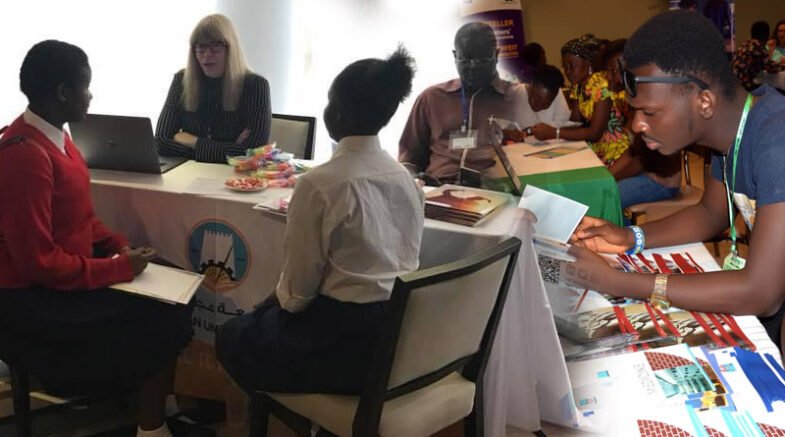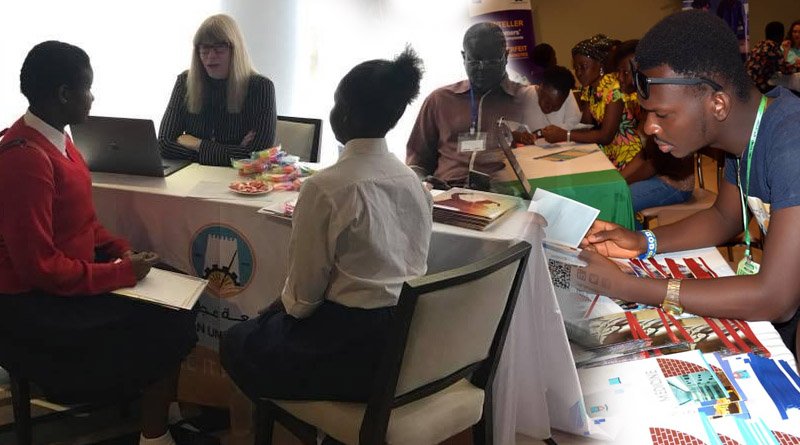Five girls and young women in Africa have received awards from the two Innovating Education Expo in Africa events held in 2018 and 2019.

The annual Innovating Education in Africa Expo is organised by the African Union to showcase contemporary social and technological developments that aim to increase educational access, efficacy, applicability, and inclusion in order to unleash potential for self-reliance, employment, and creativity.
For their efforts in achieving Agenda 2063’s “Aspiration 6,” which aims to give rise to a continent whose progress revolves around creating a stimulating environment where locals can thrive, five girls and young women in Africa have received awards from the two Innovating Education Expo in Africa events held in 2018 and 2019.
Susannah Farr, CEO of the Gold Youth Development Agency (GYDA) in South Africa, was recognised as the Expo’s top innovator of education in Africa. Through an interpersonal methodology that is replicable, adaptable, and views every young person on the continent as a “potential future nation-builder,” her organisation is committed to assisting young people at the local level.
The organisation wants to encourage long-lasting changes in educational and behavioural practises by leveraging young people’s positive influence over their peers. GYDA is looking for ways to close the employment gap in underdeveloped regions as well as ways to improve academic performance in challenging circumstances.
In 123 communities across 4 countries, their research-based youth peer education methodology has reached about 55,000 young people.
Anne came in second place at the 2019 Innovating Education Expo while representing eLimu Kenya, a leading provider of digital educational content in East Africa. Her company created the literacy programme Hadithi Hadithi, which is geared towards children in refugee camps and neighbourhoods who are young and out of school.
Students can read true stories that give them a taste of life in Africa using the software, which is available in English, Swahili, and Somali. Given that the stories are written by Kenyan teachers and illustrated by artists from all over East Africa, Hadithi Hadithi also gives local talent a platform.
The educational content of the software goes beyond just telling stories to teach spelling and writing, contributing to the “Reading to Learn” teaching methodology, which is thought to improve student performance and be four times more effective than traditional methods.
Women make up more than half of all business owners in Africa, but according to World Bank reports, they only receive an average wage of 66 cents for every dollar earned by men. But since 2013, only 3% of early-stage funding has gone to all-female startup teams, compared to 76% for all-male startups. And in 2021, this proportion fell to less than 1%.
Aiding female entrepreneurs as they grow their businesses presents an opportunity to advance gender equality while also creating wider benefits for regional communities and fostering economic development across Africa. Africa understands that substantial investments in postsecondary education and research are essential for the advancement of its social and economic conditions.
Education is a basic human right and is also essential to expanding work and income options. It is essential to ending the poverty cycle.
With the recognition of important resources that aid alumni in advancing in the real world, the AU Continental Education Strategy for Africa (CESA) has advanced significantly.
Information, communication, and technology (ICT) are crucial to supporting graduates, providing opportunities for entrepreneurship, employment, and creativity, allowing for flexibility in the classroom, removing learners’ “limitations of time and space,” and enhancing their sense of self-worth. This strategy will enable the African education sector to advance beyond its current state.
